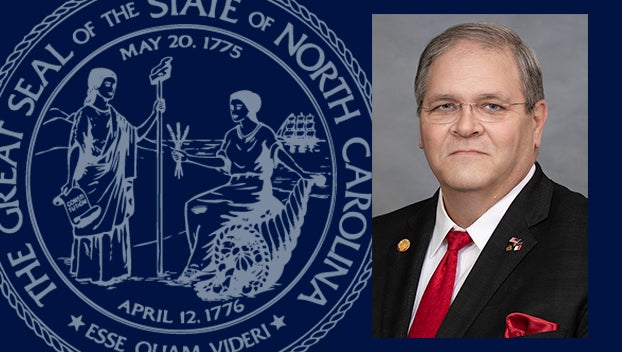Judge restores primaries in appellate-court contests
Published 8:32 pm Thursday, February 1, 2018
A federal judge has restored primaries for appellate court races in North Carolina for 2018.
Late last month, U.S. District Judge Catherine Eagles heard arguments on restoring the judicial primaries. She issued a partial preliminary injunction Wednesday.
The state Democratic Party and several county Democratic parties sued in December over an October law that eliminated partisan primaries for trial and appellate court judgeships for this year only. They said it violated their constitutional right to associate as a party and choose in an election people they believe best represents their party for the general elections.
Democrats asked Eagles to block the law so candidate filing could be held starting Feb. 12 with a partisan primary in May, like other 2018 elections for Congress and the legislature.
“This change burdens the associational rights of the plaintiff political parties by impeding their ability to focus support on one candidate and to advance their political and electoral goals in the general election,” Eagles wrote in her ruling.
Eagles declined to restore primaries for superior court and district court races. Republican lawmakers argued those primaries were cancelled because legislators are debating changes to superior court and district court boundaries.
Eagles noted that argument does not apply to appellate-court races, where candidates run across the state. Conducting free-for-all general elections could attract many candidates and confuse voters.
Before Eagles issued the injunction, races for the N.C. Supreme Court, N.C. Court of Appeals, superior courts and districts courts, candidates would have been decided in a simple plurality general election Nov. 6. That could result in a candidate being elected with less than 50 percent of the vote.
In the past, judicial races were nonpartisan and included primaries when more than one candidate in a political party sought a specific judicial seat.
The filing period for judicial contests begins at noon June 18 and ends at noon June 29. This year, judicial candidates may file as unaffiliated without having to qualify through the petition process.
At least one justice on the seven-member state Supreme Court and at least three judges on the 15-member state Court of Appeals will be elected Nov. 6. Currently, terms for those courts run for eight years. The seat held by Barbara Jackson, a Republican, is open this election cycle. The Court of Appeals seats held by Republican Ann Marie Calabria, Republican Rick Elmore and Democrat John S. Arrowood will be on ballots this year.
The decision by the Republican-controlled North Carolina General Assembly to do away with the primaries did not sit well with Democrats in the legislature, other Democrats across the state and some judges.
After the legislature approved the bill eliminating the primaries, Gov. Roy Cooper vetoed it. The legislature overrode that veto. Cooper said the override was part of a movement to amend the North Carolina Constitution to permit the legislature to pick the state’s judges and “rig the system.”
Legislators proposed an amendment to the state constitution to reduce the terms of judges to two years, the shortest terms in the nation. That would make certain that every judgeship would be on ballots in the 2018 election cycle.
Not all Republican judges support such a change. Chief Justice Mark Martin, a Republican whose term ends in 2022, voiced opposition to the shorter terms.
Ultimately, voters would have to approve the proposal to shorten judges’ terms to four years.
North Carolina Democratic Party Chairman Wayne Goodwin released the following statement after a federal court restored the judicial primaries for state Appeals Court and state Supreme Court: “We applaud the court for stopping Republicans’ attempts to rig our judicial elections. Restoring people’s right to vote in primaries for the Supreme Court and Court of Appeals is an important victory, but we believe that same right should have been extended to our lower courts as well. Make no mistake – this is a major voting rights victory, yet another setback for Republicans’ efforts to rig our judiciary, and is the third time this month alone the courts have shot down Republicans’ attempts to rig our elections. NC Democrats will continue to fight to protect North Carolina voters most fundamental right — the right to vote.”
The Associated Press contributed to this report.






